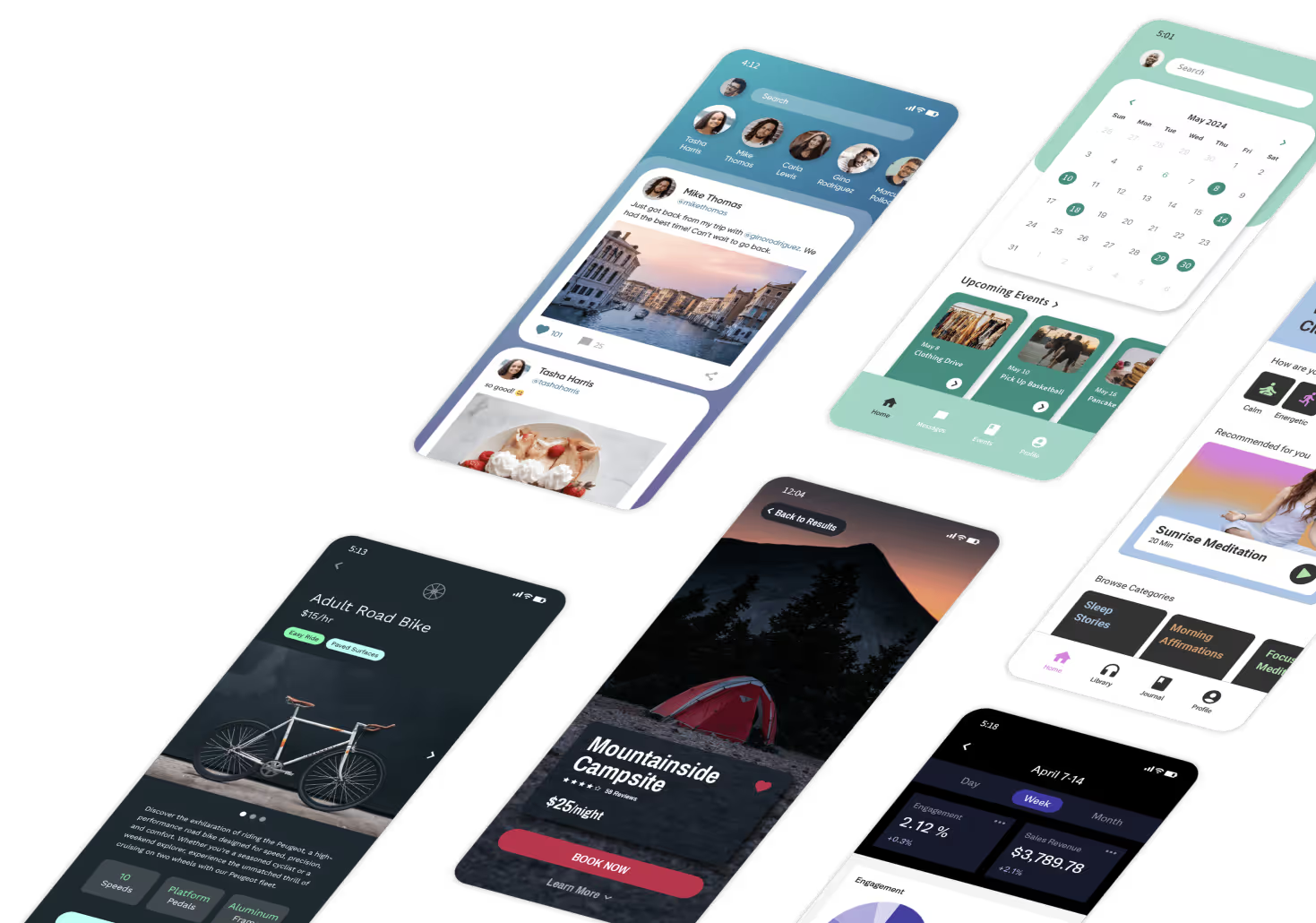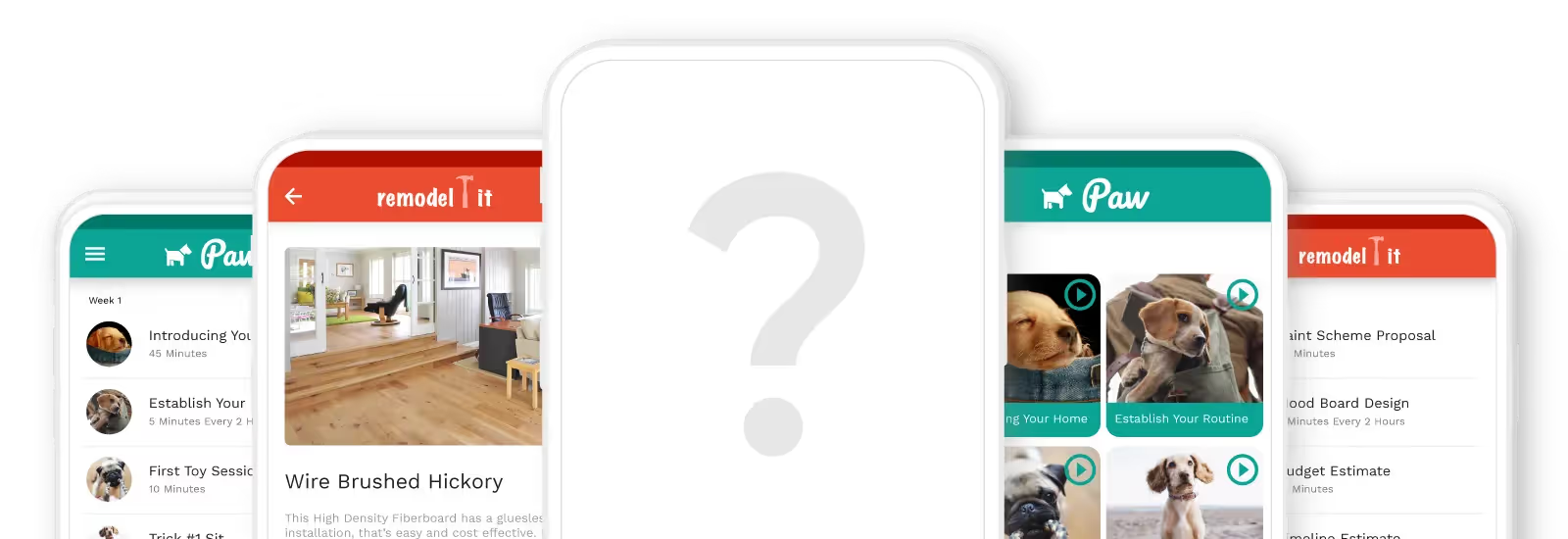
What Is Appian?
Appian provides a low-code app-building platform tailored to the unique needs of larger organizations and enterprises. While it offers tools to help you create automated workflows, you can weave several other processes into your app, including artificial intelligence (AI), data management, and even robotics.
The platform particularly appeals to those in sectors such as financial services, government, insurance, and manufacturing. Appian excels at rapid app development and productivity-boosting workflow automations for complex organizational needs.
Ultimately, Appian is a low-code app builder, so users must have technical experience before using the platform. While you won't need to be a full-stack developer, you should have a basic understanding of logical constructs (like conditions and loops), data management, an idea of how APIs work for integrations, and some SQL knowledge.
Conveniently, Appian offers training and certification programs so you can develop the necessary skills to get the most out of its platform. Each certification costs $200.
Why Look for Appian Alternatives?
While large organizations in specific industries might jump at Appian, the platform doesn't appeal to everyone. Here are the key reasons why businesses seek alternatives:
Appeals to large organizations only: Entrepreneurs, freelancers, and small and medium businesses most likely won't need any of Appian's enterprise-level features, such as extensive automation of complex processes. Most smaller organizations can build the app or tool they need with a more accessible, easier-to-use platform.
Appian requires technical skills: Appian is a low-code platform, not a no-code platform. Learning Appian will be a struggle if you don't have any experience with tech or tech concepts. This creates a significant barrier for non-technical founders and business owners.
Enterprise pricing only: While Appian doesn't publish its pricing and you'll need to contact its sales department through its website, its cheapest plans most likely cost in the thousands of dollars per month, depending on how many features you need customized to your business. This is quite a tall order for smaller and medium-sized businesses.
Limited flexibility: Appian shines at creating sector-specific apps for industries like financial services and government. If you want to make an app to manage your company's real-estate listings or one to take bookings and payments for your tattoo business, you'll probably be better served looking elsewhere.
The Top 3 Appian Alternatives at a Glance
| Adalo | Retool | Bubble | |
|---|---|---|---|
| Strengths | AI-powered app building. Publishes to Apple App Store, Google Play Store, and web from single codebase. Unlimited database records on paid plans. No usage-based charges. | Options for small businesses and enterprises. Connects with several databases and over 70 integrations. Frontend builder is a simple drag-and-drop editor. | One of the largest ecosystems in the app-building space. A no-code platform with extensive customization. Advanced security features. |
| Ideal Use Cases | Best for any app needed by freelancers, entrepreneurs, and small and medium businesses requiring native mobile apps. | Builds unique and customized internal business tools. | Able to create almost any kind of web app with deep customization. |
| Limitations | Doesn't provide enterprise-specific features like on-premise deployment. | You'll need technical knowledge to build your backend and database. | Steep learning curve. Mobile apps are web wrappers, not native. Workload Units create unpredictable costs. |
Top 8 Appian Alternatives
#1 Adalo
Overview
Adalo is an AI-powered app builder for database-driven web apps and native iOS and Android apps—one version across all three platforms. The platform combines visual drag-and-drop building with AI-assisted features, enabling launch to the Apple App Store and Google Play in days rather than months. Over 3 million apps have been created on Adalo, with the visual builder described as "easy as PowerPoint."
Following the Adalo 3.0 infrastructure overhaul in late 2025, the platform is now 3-4x faster with modular infrastructure that scales with app needs. This means no record limits on paid plans—apps can scale beyond 1 million monthly active users with proper data relationship setups.
Who It's Best For
Adalo appeals to nearly anyone because it requires no technical knowledge or programming skills. You can develop an app for almost any small business using the intuitive building interface, which gives you nearly pixel-perfect design freedom. This allows you to configure an on-brand app that meets your needs and tastes.
The platform's agnostic builder lets you publish the same app to the web, native iOS, and native Android, all without writing a line of code or rebuilding. If your plan is mass distribution through the app stores' vast marketplaces, this cross-platform capability provides significant advantages over many alternatives.
While easy enough for nearly anyone, Adalo doesn't sacrifice power for simplicity. With thousands of integrations and dozens of third-party plugins, the platform provides enough tools to give your app the functionality it needs to help your business succeed.
AI features streamline the building process further. Magic Start generates complete app foundations from descriptions—tell it you need a booking app for a dog grooming business, and it creates your database structure, screens, and user flows automatically. Magic Add lets you add features by describing what you want in natural language. X-Ray identifies performance issues before they affect users, helping maintain app quality at scale.
Unlike many app-building platforms, Adalo lets you publish your app on the web, Apple App Store, and Google Play Store. This app store publishing capability is crucial because getting your app in front of the billions of users on these platforms is often the hardest part of launching a new app or business—Adalo removes this barrier entirely while giving you access to critical engagement tools like push notifications.
Limitations
While Adalo works great for smaller and medium-sized businesses, it doesn't provide an enterprise version with features like keeping your source code, patching in custom commands, or running on-premise deployments. Large-scale organizations requiring these specific capabilities might need to look elsewhere.
Pricing
Get started with Adalo for $36/month. All paid plans include unlimited database records and no usage-based charges—meaning no bill shock as your app grows. This predictable pricing model contrasts sharply with platforms that charge based on workload units or data operations.
#2 Retool
Overview
Retool is a low-code competitor to Appian. It offers a robust environment for connecting your databases, APIs, and more to your app, with a focus on internal business tools.
Who It's Best For
Retool has a version for businesses of all sizes—from fresh startups to large-scale enterprises. It's specifically built for companies looking to create their internal business tools, such as CRM boards, project management tools, accounting software, and more.
While Retool has a straightforward drag-and-drop frontend builder, you'll need a database before building your front end. You can connect your own, as Retool has over 70 database integrations to MongoDB, several SQL databases, and many others.
If you don't have a database but know your way around one, you can build your own with Retool's internal database builder. This makes it easy for folks who know what they want to build out all parts of their app in one place.
Limitations
Because it's a low-code platform, Retool requires technical knowledge. Additionally, the platform is designed to create internal business tools like CRM boards and project management tools. If you need to make an external, client-facing app for your cafe or retail business, Retool might not be the right fit.
Pricing
Retool's pricing starts at $10/month per user (people who can build and edit your app) and $5/month per end user who logs into and uses it. This version lets you connect nearly any database to your app and run advanced tests to ensure it runs smoothly.
You can grant special permissions for certain team members for $50/month per user and $15/month per end user. This version also lets you send push notifications to get information out to your team quickly.
#3 Bubble
Overview
Bubble is a no-code web app builder with one of the most robust ecosystems in the app-building space. It offers extensive customization options for those willing to invest time in learning the platform.
Who It's Best For
Bubble is a no-code tool that doesn't require formal programming knowledge. This means that nearly anyone can learn the platform—unlike Appian, you won't need to know tech concepts or how to markup database schema before getting started.
It's also flexible enough to create nearly any web app you can imagine—an internal business tool of all shapes and sizes or an external, client-facing tool for your business. When you start building with Bubble, you'll have access to thousands of premade templates and add-ons, which can power up your app.
Limitations
The great power that comes with Bubble must be earned: the platform has a steep learning curve that takes a few months to master. The extensive customization options often result in slower applications that can struggle under increased load, frequently requiring hiring experts to optimize performance.
Bubble's mobile app solution is a web wrapper, not a true native app. This introduces potential challenges at scale and means that one app version doesn't automatically update web, Android, and iOS apps deployed to their respective app stores. Each platform requires separate management.
Additionally, Bubble's Workload Units create unpredictable costs. The calculations for these usage-based charges can be unclear and uncertain, making it difficult to budget accurately as your app grows. Claims of millions of MAU on Bubble are typically only achievable with significant expert help and optimization.
Pricing
Bubble's web and mobile wrapper offering starts at $59/month with usage-based charges, limits on app re-publishing, and record limits due to Workload Units. Compare this to Adalo's web and true-native mobile builder starting at $36/month with unlimited usage and app store publishing with unlimited updates to apps once published.
The next Bubble tier at $134/month (billed monthly) provides 100GB of file storage and up to 14 days of database backups, but still includes Workload Unit restrictions.
#4 Noloco
Overview
Noloco is an app builder that leverages no-code ease and lets businesses build their internal web apps quickly from existing data sources.
Who It's Best For
Noloco has a pricing tier for businesses of all sizes looking to build their internal app or tool. Because it boasts a no-code drag-and-drop interface, you won't need to bring any tech skills to get started.
Like most app-building platforms for creating internal business tools and software, you'll be best served with a pre-existing database. Noloco integrates with popular database providers like SmartSuite, Airtable, Postgres, Google Sheets, and more.
Limitations
While Noloco harnesses the power of no-code simplicity, you can only use it to create web apps—you won't be able to publish your apps to the Apple App Store and Google Play Store.
Additionally, Noloco is used for building internal business tools only, so if you want to make an external, client-facing app like a booking or e-commerce app, you might want to look elsewhere.
Pricing
For $49/month (billed monthly), you can connect up to 5,000 rows of data. The $149/month (billed monthly) version is made for businesses with more extensive databases, providing up to 50,000 data rows.
#5 Draftbit
Overview
Draftbit is a low-code platform for building web and native mobile apps. It can also publish apps to the Apple App Store and Google Play Store, making it one of the few alternatives that supports true native mobile deployment.
Who It's Best For
Like Appian, you'll need some technical background to use Draftbit. Unlike Appian, Draftbit allows you to create external, client-facing apps. So, if you're a techie and want to use your computer skills to develop an app for your small cafe, Draftbit might be a great option.
Draftbit also comes with developer-friendly features to supercharge your app. You can patch your unique code to create particular functionalities, share your app on GitHub for developer feedback, and keep your source code if you want to develop it on another platform or with code.
Limitations
Like any other low-code platform, you'll need to have technical experience to use Draftbit. And even if you are a techie, you might not need some of Draftbit's advanced features, like the ability to patch in your own lines of code. The platform's power comes with complexity that may be overkill for simpler projects.
Pricing
Draftbit offers 3 pricing tiers, each appealing to different needs.
The first tier's pricing starts at $29/month (billed monthly), allowing for Apple App Store and Google Play Store publishing. You'll also be able to connect unlimited API endpoints for data transfer.
The second pricing tier is geared towards teams. It starts at $249/month (billed monthly) and lets you publish up to 15 apps with 5 different editors who can work together in real time.
Starting at $2,000/month (billed monthly), the third tier lets you hand off your app development to Draftbit's internal team. As the client, you'll set the building pace and communicate with the team via Slack.
#6 Glide
Overview
Glide is a no-code web app builder that emphasizes aesthetics and speed-to-launch through template-based building.
Who It's Best For
If you prioritize a sleek and modern design and can work within template constraints, you should shortlist Glide. You can choose from over 100 free and paid templates for building various apps, such as HR tools, Portals and Dashboards, Project management, and more. Every template delivers polished visual design.
While you can make a web app for nearly any application, Glide excels at building internal business applications. While you can create your database using Glide Tables, Glide also integrates with several database providers, like Airtable, Google Sheets, and more.
Glide is a go-to for spreadsheet-based apps, though Adalo's Sheetbridge offers similar convenience—enabling users to turn a Google Sheet into an actual database for easy control without database-related learning curves.
Limitations
Glide is heavily format-focused and restricted to set templates. This makes it fast to build and publish with, but creates generic, simplistic apps with limited creative freedom. You won't be able to create apps for the Apple App Store and Google Play Store, as the Glide platform only supports web app publishing.
You'll also need to start building your frontend from your database—this means you'll need to create your database first. This makes Glide less customizable than other no-code platforms that allow more flexible building approaches.
Pricing
Pricing starts at $60/month (billed monthly) to get the ability to build an app with a custom domain, but it is still limited by app updates and data record rows, which attract additional charges. You'll also get Glide's AI features to add extra power to your app.
The $125/month (billed monthly) version, catering to the needs of teams or app-building agencies, lets you build multiple apps with up to 5 editors, allowing for up to 100GB of storage space.
#7 Softr
Overview
Softr is a no-code platform that lets you create a web app from an existing database, focusing on speed and simplicity for database-driven applications.
Who It's Best For
If you're a business with a database and want to transform it into an app fast, you should check out Softr. Softr integrates with databases like Airtable, SmartSuite, Hubspot, and others, allowing you to connect your data when signing up for Softr.
Once your database is connected, Softr leverages a simple building interface that lets you cobble your app together by dragging and dropping blocks, which visualize your data. This allows you to create a robust app without much fuss or the need for technical knowledge.
Softr is looked to for spreadsheet app building, provided the web app restrictions are met and the higher price point is acceptable for your needs.
Limitations
If you don't already have a database, you won't be able to use Softr, so bringing a database is an absolute must. Because of the database requirements, Softr mainly supports developing database-driven internal business tools, not external, client-facing apps.
Additionally, the Softr platform doesn't support publishing on the Apple App Store and Google Play Store, or iOS and Android app creation. If you're looking to build an app you can get in front of the 1 billion+ combined app-store crowd, you'll need to look elsewhere.
Pricing
Softr pricing starts from $167/month to publish an actual Progressive Web App, which is still restricted by records per app and records per datasource. The lower tier at $59/month (billed monthly) allows you to create unlimited apps with a total of 5,000 database records for every block (charts, tables, graphs, etc.).
#8 Salesforce Lightning
Overview
Salesforce Lightning is a low-code CRM app builder designed to streamline sales team productivity and improve collaboration within the Salesforce ecosystem.
Who It's Best For
Salesforce Lightning is ideal for teams that work at all marketing funnel stages—from generating leads to dealing with established clients. The intuitive user interface allows you to customize your CRM tools and workflows within the Salesforce environment.
Additionally, Salesforce Lightning features tools that provide AI-driven insights to increase sales, accelerate marketing campaigns, and simplify workflows. If your organization already uses Salesforce products, Lightning provides natural integration.
Limitations
While some of the features are simple and no-code, customization requires technical knowledge. Overall, the platform has a higher learning curve, which creates additional challenges when onboarding new team members.
Salesforce Lightning is also deeply tied to the Salesforce ecosystem. If you're not already invested in Salesforce products, the platform may not make sense as a standalone app-building solution.
Pricing
Salesforce Lightning offers several different pricing tiers that accommodate teams of all sizes, starting at $7/month (billed annually at $84) and going up to around $40,000/month (billed monthly). For more information, access the pricing plans on the Salesforce Lightning website.
Choosing the Right Appian Alternative
The best Appian alternative depends on your specific needs, technical capabilities, and budget. Here's how to think about your decision:
For native mobile apps with app store distribution: Adalo stands out as the clear choice. Its AI-powered building tools, unlimited database records on paid plans, and true native iOS and Android compilation from a single codebase make it ideal for businesses wanting to reach the billions of users on the Apple App Store and Google Play Store.
For internal business tools with technical teams: Retool offers powerful database connectivity and a straightforward frontend builder, though it requires technical knowledge to set up properly.
For highly customized web apps: Bubble provides extensive flexibility, but expect a steep learning curve and potential performance challenges at scale. Budget for possible expert help if you're planning for significant user growth.
For spreadsheet-based apps: Glide and Softr both excel at turning existing data into functional web apps quickly, though neither supports native mobile app publishing.
Consider your app's success criteria: fast development cycles, maximum audience reach through app store distribution, and predictable costs as you scale. Platforms that support native app store publishing give you access to critical engagement tools like push notifications that keep users coming back.
FAQ
| Question | Answer |
|---|---|
| Why choose Adalo over other app building solutions? | Adalo is an AI-powered app builder that creates true native iOS and Android apps. Unlike web wrappers, it compiles to native code and publishes directly to both the Apple App Store and Google Play Store from a single codebase—the hardest part of launching an app handled automatically. With unlimited database records on paid plans and no usage-based charges, you get predictable costs as your app scales. |
| What's the fastest way to build and publish an app to the App Store? | Adalo's drag-and-drop interface combined with AI-assisted building features like Magic Start and Magic Add lets you go from idea to published app in days rather than months. The platform handles the complex App Store submission process, so you can focus on your app's features and user experience instead of wrestling with certificates, provisioning profiles, and store guidelines. |
| Which is more affordable, Adalo or Bubble? | Adalo starts at $36/month with unlimited usage and no record limits on paid plans. Bubble starts at $59/month but includes Workload Unit charges that create unpredictable costs, plus limits on app re-publishing and records. Adalo's pricing model is more predictable for growing apps. |
| Which is faster to build with, Adalo or Bubble? | Adalo is generally faster for most projects. Its visual builder is described as "easy as PowerPoint," and AI features like Magic Start generate complete app foundations from descriptions. Bubble offers more customization but has a steep learning curve that takes months to master. |
| Which is easier for beginners, Adalo or Bubble? | Adalo is significantly easier for beginners. It requires no technical knowledge, and over 3 million apps have been created on the platform by users of all skill levels. Bubble's extensive customization options come with a steep learning curve that often requires months of practice. |
| Is Adalo better than Bubble for mobile apps? | Yes, for true native mobile apps. Adalo compiles to native iOS and Android code, while Bubble's mobile solution is a web wrapper. Native apps perform better, especially under load, and one Adalo build automatically updates web, iOS, and Android versions. Bubble requires separate management for each platform. |
| What makes Appian unsuitable for small and medium-sized businesses? | Appian is designed exclusively for large enterprises, with pricing likely in the thousands of dollars per month and features tailored to complex organizational needs. The platform also requires technical knowledge including understanding of logical constructs, data management, APIs, and SQL, making it inaccessible to non-technical users. |
| Can I publish my app to both web and mobile app stores from one platform? | Yes, Adalo allows you to publish the same app to the web, native iOS, and native Android—all from a single no-code editor without rebuilding. This cross-platform capability means you can maximize your audience reach across all major platforms while only building your app once. |
| Which is more affordable, Adalo or Glide? | Adalo starts at $36/month with unlimited database records and app store publishing. Glide starts at $60/month for a custom domain but is limited by app updates and data record rows that attract additional charges. Glide also doesn't support Apple App Store or Google Play Store publishing. |
| How does Adalo's pricing compare to enterprise platforms like Appian? | Adalo starts at $36/month, making it dramatically more affordable than enterprise platforms like Appian, which typically cost thousands of dollars monthly. This accessible pricing makes professional app development available to entrepreneurs, freelancers, and small businesses who need powerful app-building capabilities without enterprise-level budgets. |















